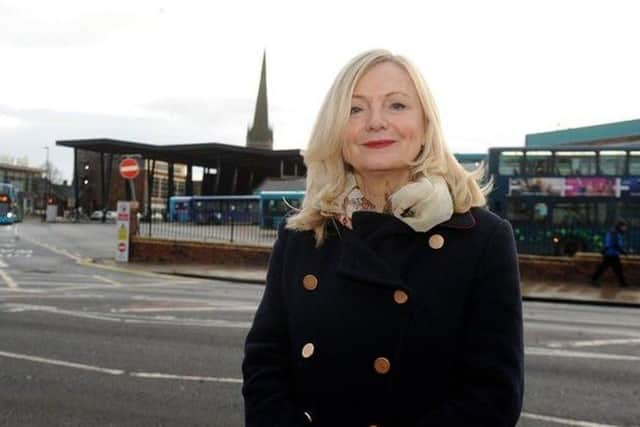Plans to bring buses back under public control take major step forward
The Labour mayor is looking to launch a London-style franchising scheme in 2027, claiming it would make services across the region more reliable and more affordable.
The move would see West Yorkshire Combined Authority (WYCA) – the taxpayer funded organisation which she runs – take full control of the bus network so it can make decisions about routes, services and fares.
Advertisement
Hide AdAdvertisement
Hide AdAt a meeting today, WYCA agreed that an assessment of the bus franchising proposals should undergo a public consultation so passengers can have their say.


Ms Brabin, who pledged to bring buses back under public control when she stood for election in 2021, will then make a final decision in March.
It comes after Greater Manchester Mayor Andy Burnham is working to bring all buses in his region back under public control by 2025, as part of his new Bee Network.
Ms Brabin has previously said private operators are “focused on satisfying shareholders” and have driven passengers away in recent years, by running unreliable services and cutting routes which do not generate a significant profit.
Advertisement
Hide AdAdvertisement
Hide AdHowever, First Bus has proposed another approach to franchising, which is known as an “enhanced partnership plus”.
The proposal, which has been backed by other private operators, would allow them to continue to run services and work in partnership with WYCA to make decisions about routes, services and fares.
The operators claim it would allow Ms Brabin to deliver her objectives – of bus making services cheaper, greener, more frequent and more reliable – but also be more cost effective for the taxpayer, easier to deliver and less risky.
WYCA said that approach “offers significant improvements” to the current model but “delivering it remains subject to further and ongoing operator agreement and establishment of delivery mechanisms”.
Advertisement
Hide AdAdvertisement
Hide AdAt the meeting today, Councillor Susan Hinchliffe, leader of Bradford Council, said bringing buses back under public control “is not a silver bullet”.
“If we want a London-style bus service there needs to be London levels of investment going into the buses as well, that probably needs to come from central Government,” she said.
Councillor Alan Lamb said passengers “don’t care” who owns the buses, they just want reliable services and affordable fares.
The Tory councillor also said improvements could be “delivered quickly for the fraction of the cost” under the existing arrangement.
Advertisement
Hide AdAdvertisement
Hide AdWYCA has previously stated that franchising will allow it to make decisions "in the interests of local bus users", but it will require “significant” investment and it is only expected to “slow the rate of decline” in passenger numbers.
The number of journeys made in West Yorkshire fell from around 170m in 2009 to 133m in 2019/20.
Operators are now claiming they have been forced to cut dozens of services because they have been struggling to cover their costs since passenger numbers plummeted during the pandemic.
The Government has provided operators with more than £3.5bn to help them protect bus services during the pandemic and cap single fares outside London at £2.
Advertisement
Hide AdAdvertisement
Hide AdMs Brabin, who is standing for re-election next year, has been working to improve services and increase passenger numbers in West Yorkshire since securing almost £70m of Government funding for an ambitious bus service improvement plan.
Around £30m is due to be spent on upgrading the bus network and introducing new services on a number of routes, to make them more frequent and more reliable.
As part of the bus service improvement plan, operators have also capped single fares at £2 and day passes at £4.50 since September 2022, in exchange for around £1.2m of subsidies each month.